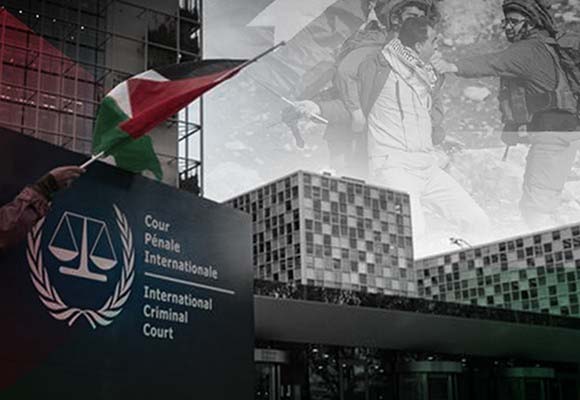By Palestinian ambassador Abdallah Attari
The International Criminal Court (ICC), also known as The Hague Tribunal, is considered the “ultimate guardian” of international justice. It was established in 2002 through the Rome Statute and pledges to relentlessly prosecute those who commit crimes against humanity, war crimes, and genocide – unless, of course, they are powerful nations or have influential allies. Clearly, it is not about who wields the weapons, but rather who holds the political influence.
The ICC has demonstrated remarkable consistency in prosecuting leaders from “convenient” regions, such as the former Yugoslavia and Rwanda. Slobodan Milosevic and Radovan Karadzic are classic examples of leaders who “happened” to fall outside the sphere of influence of powerful Western countries. However, when it comes to more powerful states, international justice suddenly becomes extraordinarily “complex” and “sensitive”.
Palestine, with the support of South Africa, has requested the ICC to investigate war crimes in the occupied territories. South Africa, drawing from its bitter experience with apartheid, dares to remind the world that oppression is not merely a thing of the past. And while the international community applauds this effort, it remains uncertain whether this applause will ever translate into meaningful action or if it will remain an empty ritual.
The ICC’s decisions are binding … in theory. In practice, however, they are more binding for those who lack the power to resist. Israel and the United States, for example, have no intention of allowing “justice” to disrupt their geopolitical interests. After all, the court’s impartiality extends only as far as the geopolitical boundaries of influence allow.
The commitment of Western countries to international justice is admirable. They strongly support the ICC – until it turns its attention to their allies. The United States, in particular, insists that international justice is a good idea, as long as it doesn’t apply to them or their allies. The result? International law becomes more of a diplomatic tool than a genuine system of justice.
It is truly remarkable how some manage to portray the International Criminal Court as a “victim” of the events of October 7. Evidently, the 76-year-long Israeli occupation and the ongoing humanitarian tragedy that escalated after October 7 are merely details unworthy of attention. This connection is not just misplaced; it is almost artistic. It requires a unique ability to ignore reality and exist within a regime of impunity so deeply entrenched that it has become second nature.
The ICC remains the stage of international justice, with states alternating roles depending on their interests. If it manages to conduct a fair trial for Palestine, it will be a historic achievement. It seems that Israelis have many rights, including the right to kill, while we Palestinians have only one right – the right to die. Until then, however, Palestinians and other “powerless” peoples will wait patiently in the shadow of international absurdity.
This article is a response to one by the Israeli ambassador Oren Anolik which appeared on the Cyprus Mail’s website on Sunday, December 1
Abdallah Attari is the Palestinian ambassador to Cyprus






Click here to change your cookie preferences